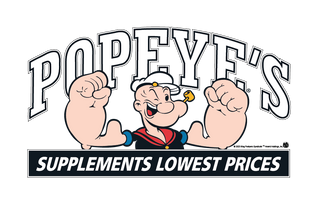
Yes, yes... You can eat this!

By: Coach Alexis Cumetti

The majority of the population thinks that healthy eating rests entirely on what sits in the plate.
People focus on macros, probiotics, the benefits of certain micronutrients and avoid things like GMOs and non-organic products. But one of the most important elements of healthy eating isn’t what does or does not make it on your fork, it’s to have a healthy relationship with your food.
Many will complicate their relationship with food. In part, because of the language we use to talk about how we eat. A number of foods are associated with a “good” or “bad” property, fashioned by our own experience and expectations of society – like calling fries and desserts “junk food” compared to other, nutrient-dense foods we label “Superfoods”.
This might not seem like a problem, but this language can have an impact on the way we feel when we eat. Many transfer these labels onto their own values: if I eat “good” food, I’m doing well. If I eat “bad” food, I’m doing poorly, explains Camille Williams, Eating Disorder Program Coordinator at the Timberline Knolls treatment center.
This “Black and white” thinking can create shame and guilt, which, in turn, affect how we eat. Categorization of food, like “good” or “bad”, can create certain mental restrictions, where we feel bad after having eaten “bad food”, then we tell ourselves we’ll never eat that way again.
Of course, the reality is that having a doughnut, a bowl of mac n’ cheese or any other kind of food does not make us a bad person – not even someone who’s unhealthy. But disentangling a negative relationship with food is difficult and takes time.
Here’s a few tricks to help reframe your relationship with food, so that it is happier, healthier and with less guilt;
-
Examine your perception with food:
Do you consider food as the enemy? As something that causes weight gain, or weight loss? Do you see food as something that nourishes you, gives you energy to take advantage of your daily life, as something that helps you celebrate and enjoy social occasions with friends, or something that gives you the necessary nutrients to attain optimal health. You can, in this way, be in good harmony with your food;
-
Do you eat when you’re hungry and stop when you are full?
-
Avoid processed foods, except on special occasions?
The key to a healthy lifestyle is balance. If you are too rigid, restrictive or strict on the topic of your diet, you will be met with failure. To eat is a journey and we should take advantage as much as possible! The more you benefit, the more you will improve your chances of maintaining good habits over time

My Relationship with Coffee
“Is coffee for me?” is a question asked way too often.
The answer? It depends… Depends on the quantity consumed, what you add (sugar, cream, etc), if you are pregnant or breastfeeding, if you tolerate caffeine’s effects, etc.
But there isn’t only caffeine in coffee. It’s also an excellent source of polyphenols (antioxidants). In fact, it is the beverage that is the highest in polyphenol content, followed by green tea.
Coffee gives you more than just a “kick”. Coffee consumption, when moderate and regular ( >400mg/day) is associated with a reduction in several diseases/pathologies, such as certain forms of cancer, cardiovascular disease, type 2 diabetes, neurodegenerative disease, etc.
However, if your sleep suffers, if you have anxiety, or you are experiencing unwanted secondary effects (heart palpitations, headaches, reflux), you need to limit your intake. Also, coffee contains a plant substance called tannins, which inhibit iron absorption. So, it would be favourable to keep your coffee as far away from your meals as possible.
So, here’s 5 caffeinated beliefs to permanently remove from your life:
-
Coffee lets me skip breakfast!
This doesn’t apply to everyone, of course, but those who it does apply to will know. You woke up late, you’re running to get ready for work, and you say “I don’t have time to have breakfast, so I’ll just have a coffee on the go”. Yes, a coffee is effective at waking us up and giving us energy to start our day, but this energy is an illusion – you aren’t getting the high-quality calories necessary to feed your body and mind. The truth is that skipping a nutritious breakfast can reduce your focus, even with caffeine in your system, and also reduce your productivity.
-
It makes a lack of sleep acceptable
How many times have you stayed up late to finish a project, without thinking of the effects of sleep deprivation because you can wake up with a cup of coffee in the morning? The fact of knowing a coffee can help us feel more alert and focused over the short term makes us more comfortable with sleep deprivation for short-term gain. However, sleep deprivation over the long term can wreak havoc in your career (loss of focus, productivity, physical and mental health complications, etc.)
-
Insomnia fuel
The cycle gets even worse if we consider the fact that drinking a lot of caffeine over the course of the day can promote the onset of insomnia. Drinking too much coffee (or too much close to bedtime) can keep your body awake for longer than in a normal circumstance, even if you are trying to sleep. This leads to being fatigued the next day, which makes you have to drink coffee… which further feeds the infernal cycle.
-
It isn’t free!
It’s true that money isn’t everything, but money is in large part the reason we work in the first place. If you end up wasting most of your salary on useless items, that can waste the primary function of your work (bringing in income) and making you work more for the same amount of money. Think about it, a medium coffee at that Green n’ white shop costs about $3. Take that coffee, once per day, every day and you’ve crossed 4 figures in annual expenses…
-
It can make you counter-productive
Coffee’s stimulatory effects can give the impression that they help you work harder. However, an excessive consumption of caffeine can make you lazier. In a comparative study done in rats, lazy rats had shown no difference in productivity after consuming elevated doses of caffeine, but the naturally hard-working rats had, in fact, obtained worse results after having consumed caffeine. If you’re a hard-worker, consuming large quantities of caffeine might make you counter-productive, even if you don’t realize it consciously.
PS: if you’re part of those who do not drink coffee, please, don’t force yourself to sign a contract with the local café because your loved ones all drink it. There are a myriad of things you can do to optimize your overall health!

Bread – Good for me, or not?
Bread isn’t only a “carb”.
It is a matrix constituted from a multitude of nutrients, including fiber, iron, magnesium and folate. However, these micronutrients can vary based on the chosen bread (white, brown, multigrain, germinated, etc.). These breads aren’t just “carbs”, so can we please stop sullying their reputations?
Besides, carbs are not intrinsically “bad” and they are not necessarily associated with weight gain. It’s more complex than to only say that to miraculously lose weight, you need to get rid of them. On the other hand, carbohydrates seem to be the least well-controlled macronutrient.
Carbohydrates, in their primary form (glucose) act as a primary energy source for our body, fueling our daily activities (from simple breathing to running a marathon)
We often make the link between carbs and breads, pastas and cakes, but fruits, vegetables, and whole grains are all carbs, and more than that, energy. They bring you a lot of fiber, vitamins, phytonutrients, water, and so on. In other words Carbs is a label that is way too simplified for the variety of nutrients that they provide when well understood.
Coming back to bread, it is not necessary to cut it from your diet for health reasons (unless you’re celiac – then you can opt for gluten-free bread). Bread can be a healthy choice in your diet and bring you far more nutrients than most media will say.
Are there some breads that are better than others?
Absolutely – opt for multigrain/brown breads that are more complete in terms of nutrients.
But, it’s not a duty to always pick the breads that are the richest in micronutrients. Food is a gift as well, not only fuel – have some fun with it!

Complete or incomplete protein: which is the correct choice?
Nutritional quality of a protein is based on two pillars: The amount of amino acids to be provided by the food (essential amino acids) and the digestibility of the protein. The body needs to obtain all of its essential amino acids in a day in order to synthesize new protein chains that you need.
First, there is an important distinction to make between protein that is complete, and incomplete. A complete protein contains the 9 essential amino acids, and is generally of animal source: eggs, milk products, meat (including fish and poultry). Some plants are also complete proteins : Potatoes and soybeans, are both good examples.
So, without exception, incomplete proteins come from a plant source: you must supplement them such that they can provide the full spectrum of amino acids. There are three plant families than can complement each other when combined. These are: cereals, nuts, and legumes plus grains. Milk products can also complete certain categories of plant proteins.
International vegetarian cuisine often combines plant proteins in order to complete them:
- Rice + lentils (India)
- Rice + Black beans (South America)
- Corn and red bean (Mexico)
- Couscous or bulgur and chickpeas (Middle East)
- Rice and tofu (Japan)
- Baked beans or pea soup and bread (Québec)
Bon appétit!
Coach Alexis





